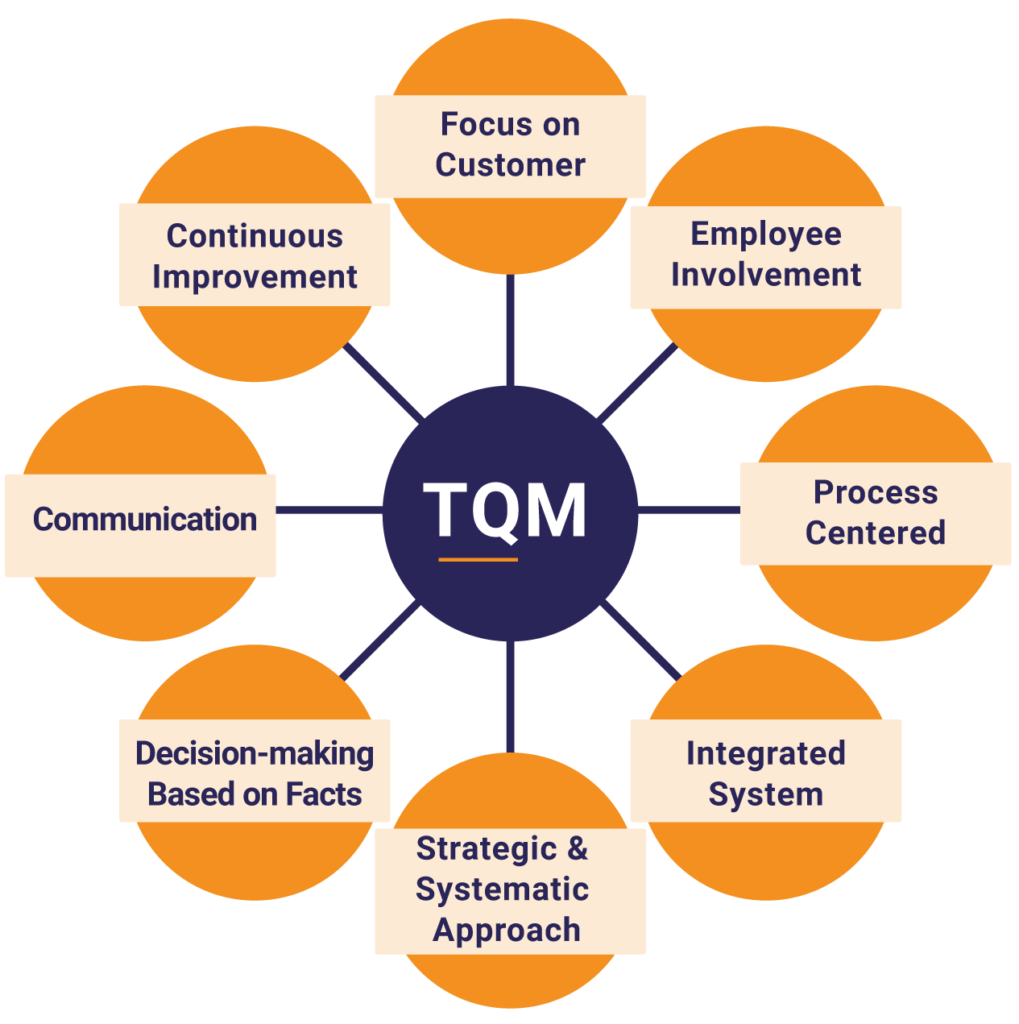Total quality management (TQM) is a term that originated in the 1950s and is today used globally, mainly in Japan, and less so in the US. It is the equivalent of a company-wide quality management system, enterprise quality management system, or integrated quality management system, to name a few.
The term ‘total’ means the entire organization—all teams, departments, and functions—is involved in supporting the quality focus of the organization. The ‘system’ refers to the managerial and technological methods to achieve quality requirements and business objectives throughout an entire organization. Although it may go by various names, today “operational” and “enterprise” excellence are a more appropriate name for TQM.
The Juran Excellence Model has long been expressed as a company-wide business excellence and/or enterprise quality system. It embodies organizational beliefs and habits outlined in policies and processes to develop a culture capable or designing and delivering products and services that will exceed customer, regulatory, business, and societal needs.

Key Principles of TQM
Total quality management has a number of key principles which—when implemented together—can move any organization towards business excellence.
- Customer focus
- Central to all successful TQM systems is an understanding that quality is determined by the customer. No matter what measures you introduce to improve the quality of your products and services, the only way of knowing if they have been successful is customer feedback, whether in the form of reviews, return rates, or satisfaction surveys.
- Employee involvement
- Every person in an organization—from entry-level workers to management—has a responsibility for the quality of products and services. However, employees can only be invested if they feel empowered to make their own decisions, something that depends on management creating the right workplace environment.
- Centered on process
- A TQM system will fail without a clear focus on processes and process-led thinking. A process fault is ultimately the cause of most problems, which is why effective monitoring of every single step is an essential part of assessing, maintaining and improving quality.
- Integrated system
- An organization should have an integrated system that allows for effective total quality management. This may be a bespoke system, or one based on a quality standard such as ISO 9001, but it should be understood and applied across all functions and departments.
- Strategic & systematic approach
- Critical to quality management is the existence of a strategic plan that outlines how an organization intends to achieve its mission and business goals. It goes without saying that quality should be a core component of such a plan.
- Decision-making based on facts
- Business performance can only be assessed using the available facts, such as sales data, revenue figures, and customer retention rates. The opinions of customers, employers and suppliers should never be used to inform decisions.
- Communication
- Effective communication is essential when an organization is implementing significant changes for the sake of business improvement. Every member of staff should be made aware of the strategy, the timescales involved, and the reasons for implementing it.
- Continuous improvement
- Applying the principles of DMAIC and Lean Six Sigma will instill an organization with a culture of continuous improvement, driving all employees to constantly seek new ways to be more competitive and deliver high-quality products for all stakeholders.
Why Follow TQM Principles?
The quality department in many companies is only responsible for the quality of products, with its focus typically limited to the supply chain. It has no role in driving quality throughout the organization, yet organizations have many opportunities to drive customer experience beyond products, with customer service being a prime example.
In recent years—as competitive pressures have forced a theme going far beyond traditional quality control, inspection, quality engineering, and reliability engineering—the role of the quality department and function is carried out by all departments in a TQM system.
Managing quality in a TQM system ensures your organization moves from its current “little q” or product focus to “big Q, enterprise-focus” thinking. The greatest benefit is reducing the total cost of quality by improving all products, services and processes, not just the ones in production.
Other benefits of TQM include:
- Reduce risk and mitigate risk when designing new products and processes
- Resolve problems before they occur
- Resolve problems that occur during operations
- Improve supplier performance
- Control processes to avoid risk even when scaling up
- Increase productivity or all employees
- Reduce the total cost of quality not just the costs of poor quality of products
Get in touch today to discover how Juran can put your organization on the path to enterprise excellence, or read more about the Juran Model and Roadmap for quality improvement.






